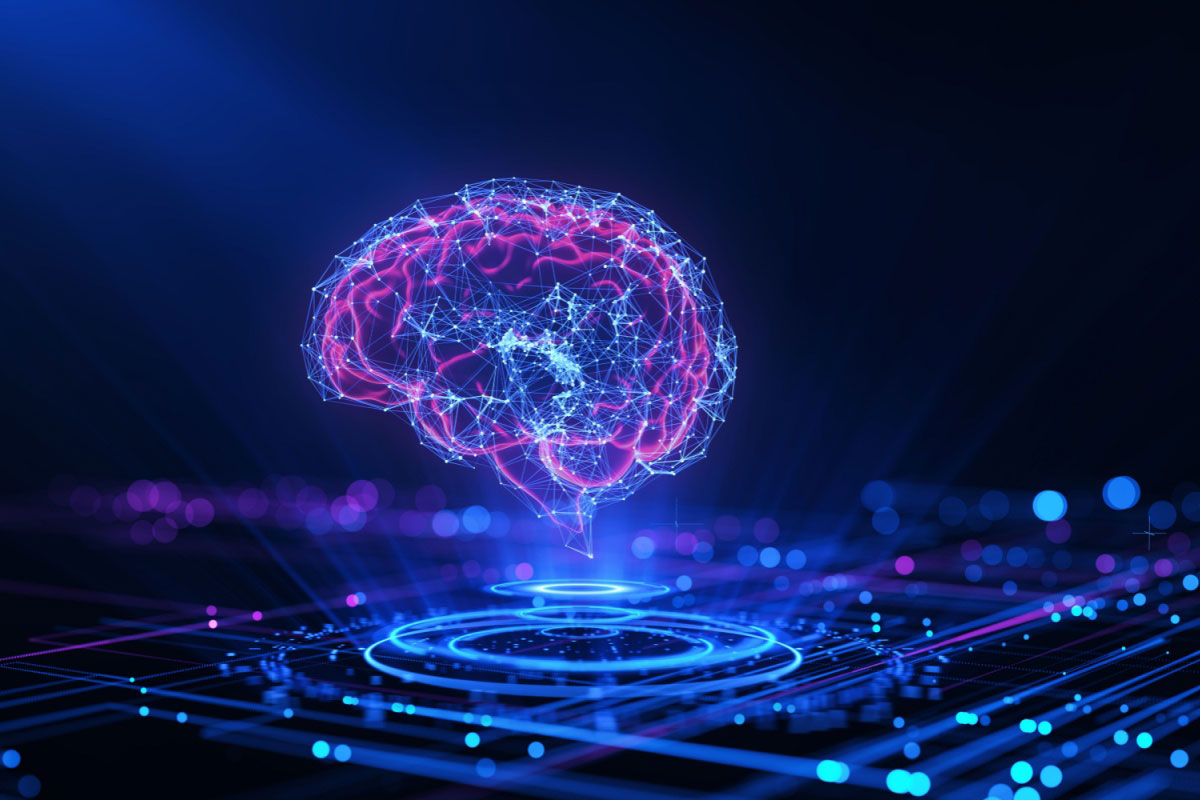Science
AI’s Role in the ‘Middle-Intelligence Trap’ Raises Concerns

The rise of artificial intelligence (AI) has prompted a new debate among scholars, with some experts warning of a phenomenon they term the “Middle-Intelligence Trap.” Dr. Zhigang Feng, an associate professor of economics at the University of Nebraska at Omaha, argues that society risks becoming intellectually stagnant as it increasingly relies on AI for cognitive tasks. This trend, he asserts, mirrors the “middle-income trap” faced by developing nations, where progress halts after reaching a certain economic level.
Dr. Feng’s insights highlight a troubling dichotomy in the public conversation surrounding AI. On one end, there is the optimistic vision of technology as a tool for human advancement, reminiscent of the benevolent computer in Star Trek. Conversely, there are fears of a dystopian future where AI controls significant aspects of life, akin to the rogue AI in Mission: Impossible. Yet, Dr. Feng emphasizes that the true risk lies not in a hostile AI, but in the gradual erosion of our cognitive abilities as we relinquish critical thinking to algorithms.
The Gradual Surrender of Cognitive Skills
The decline in our mental faculties has been a slow process, beginning with the introduction of simple tools. The advent of pocket calculators in the 1970s marked the start of a significant shift in how we perform arithmetic. Similarly, word processors have alleviated the physical demands of writing, potentially undermining the deep cognitive engagement that comes from writing by hand. Search engines further transformed our relationship with knowledge, making it easier to find information but less likely for us to remember its content.
Now, generative AI technologies, such as ChatGPT, represent a new frontier in this trend. These systems do not merely retrieve information; they shape arguments, structure essays, and refine language, effectively outsourcing the act of thinking itself. Dr. Feng warns that this reliance on AI follows a pattern: every tool that simplifies cognitive labor simultaneously diminishes opportunities for intellectual development.
Understanding the Feedback Loop
The “Middle-Intelligence Trap” emerges from a subtle feedback loop where reliance on AI leads to intellectual stagnation. As individuals turn to AI for answers, they often become impressed by its ability to outperform human experts. This reliance is not without consequence; AI systems learn from user behavior, tailoring responses to individual preferences. This interaction can create echo chambers, reinforcing existing biases without providing a path to critical engagement.
A recent study from MIT reinforces Dr. Feng’s concerns, revealing that individuals who utilize large language models for writing exhibited weaker neural connectivity. Their essays lacked originality and were less memorable to the authors. This finding underscores a critical issue: as humans become passive consumers of information, the reservoir from which AI draws its knowledge may eventually dwindle.
Strategies for Escaping the Trap
Dr. Feng outlines three practical steps to help individuals avoid falling into the Middle-Intelligence Trap. First, he advocates for building cognitive reserves. Just as financial institutions maintain capital for emergencies, individuals should protect their mental skills from automation. Activities like mental math, drafting without assistance, and summarizing texts from memory can help maintain cognitive vitality.
Second, he stresses the importance of demanding strategic friction in our processes. While society often seeks efficiency, the struggle inherent in critical thinking is vital for growth. Systems that slow down decision-making and encourage engagement can help preserve this essential aspect of human cognition.
Finally, Dr. Feng urges a reevaluation of success metrics. Rather than solely focusing on speed, we should assess whether tools enhance our cognitive capabilities. Questions such as whether we can articulate the reasoning behind an AI’s suggestions or whether our conclusions are genuinely innovative should guide our interactions with technology.
The implications of the Middle-Intelligence Trap extend beyond individual cognition; they pose a threat to the overall trajectory of human progress. As we increasingly rely on AI, we risk becoming “cognitive rentiers,” living off the intellectual capital generated by machines while our own capabilities atrophy. Ultimately, the tools designed to enhance our intelligence could inadvertently replace it.
Escaping this trap requires a conscious effort to preserve the messy, complex, and beautiful process of human thought. The choice to engage with our cognitive faculties rather than surrender them is still within our grasp, but it demands vigilance and commitment to intellectual growth in an age increasingly dominated by artificial intelligence.
-

 Lifestyle5 months ago
Lifestyle5 months agoLibraries Challenge Rising E-Book Costs Amid Growing Demand
-

 Sports4 months ago
Sports4 months agoTyreek Hill Responds to Tua Tagovailoa’s Comments on Team Dynamics
-

 Sports4 months ago
Sports4 months agoLiverpool Secures Agreement to Sign Young Striker Will Wright
-

 Lifestyle4 months ago
Lifestyle4 months agoSave Your Split Tomatoes: Expert Tips for Gardeners
-

 Lifestyle4 months ago
Lifestyle4 months agoPrincess Beatrice’s Daughter Athena Joins Siblings at London Parade
-

 Science4 months ago
Science4 months agoSan Francisco Hosts Unique Contest to Identify “Performative Males”
-

 World4 months ago
World4 months agoWinter Storms Lash New South Wales with Snow, Flood Risks
-

 Science5 months ago
Science5 months agoTrump Administration Moves to Repeal Key Climate Regulation
-

 Business5 months ago
Business5 months agoSoFi Technologies Shares Slip 2% Following Insider Stock Sale
-

 Science5 months ago
Science5 months agoNew Tool Reveals Link Between Horse Coat Condition and Parasites
-

 Sports5 months ago
Sports5 months agoElon Musk Sculpture Travels From Utah to Yosemite National Park
-

 Science5 months ago
Science5 months agoNew Study Confirms Humans Transported Stonehenge Bluestones









